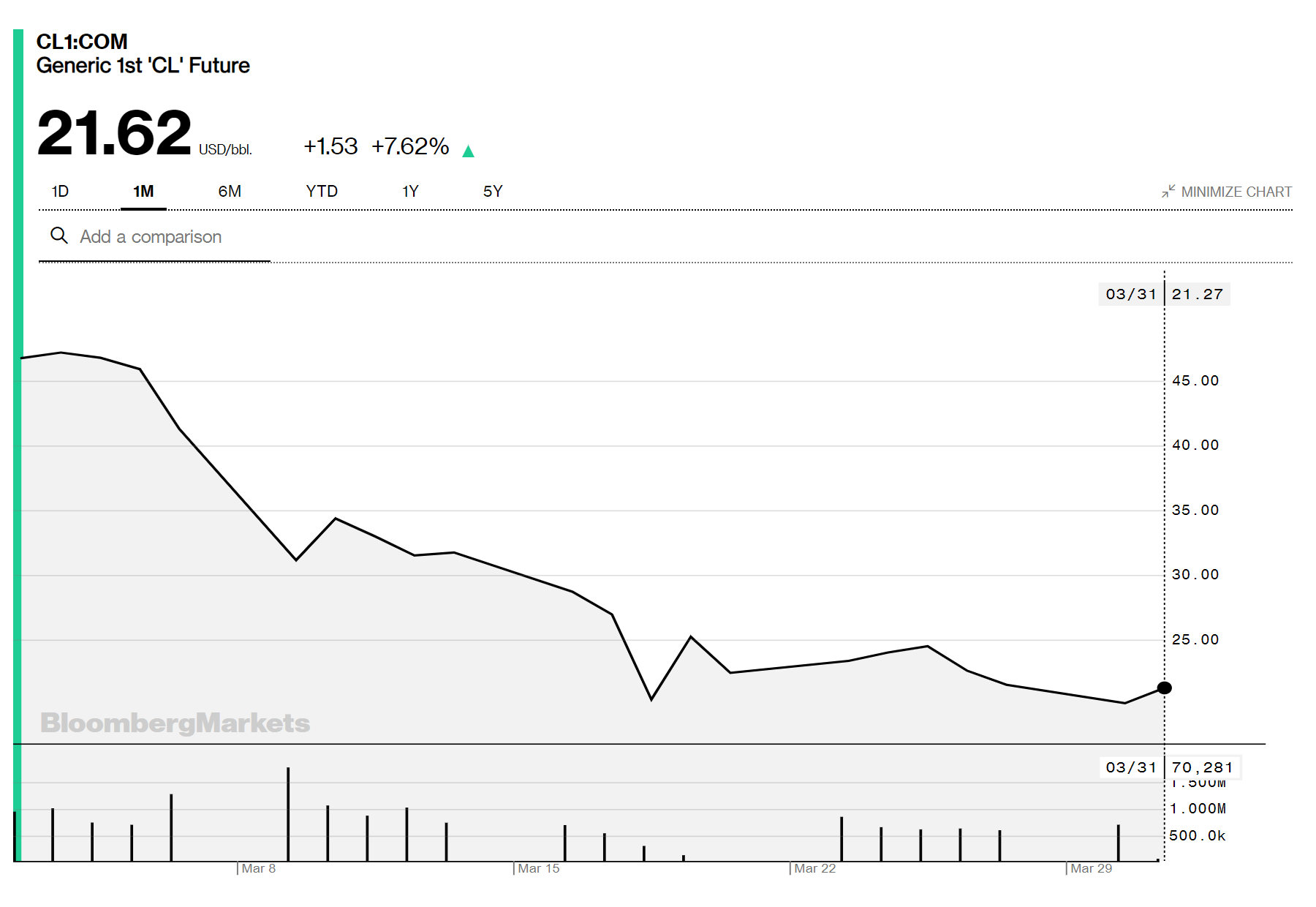The oil price is plummeting rapidly, dropping to as low as $5 in Canada. The dumping of additional supply by Saudi Arabia and Russia is expected to rattle the oil market further in April, which may cause high-risk assets including stocks and crypto to drop off.
Over the next several weeks, JPMorgan expects oil-rich sovereign wealth funds to vamp up their cash-buffer as the dispute between Saudi Arabia and Russia intensifies.
A large sell-off of stocks at a time during which the U.S. stock market has just started to recover from recent lows could fuel the next leg down of equities.
If crypto-assets continue to demonstrate a high level of correlation with the U.S. stock market, cryptocurrencies could also feel the pressure imposed by the declining oil market.
High probability the Dow Jones recovery is short-lived, prompting more crypto investors to be cautious
Throughout March, the U.S. stock market has dropped off substantially as fear towards the coronavirus pandemic worsened.
According to worldometers.info, the U.S. has surpassed 160,000 in confirmed coronavirus cases, forcing major companies in the likes of Macy’s to lay off the majority of their workforce.
The Federal Reserve’s projection of 47 million jobless claims in 2020 and the negative economic impact of the coronavirus pandemic is expected to apply significant selling pressure on U.S. stocks.
In recent weeks, the crypto market has shown that cryptocurrencies are not immune to a global economic slowdown. When investors frantically start selling all types of assets including gold, crypto-assets remain highly vulnerable to a downturn.
JPMorgan strategist Nikolaos Panigirtzoglou said:
“It makes sense for sovereign funds to frontload their selling, as you don’t want to be selling your assets at a later stage when it is more likely to have distressed valuations.”
A sell-off of an additional $75 billion in stocks, as estimated by the Sovereign Wealth Fund Institute, may slow down the effect the $2 trillion Senate stimulus package has had on the U.S. stock market.
Holger Zschaepitz, market analyst at Welt, said:
“Global stocks mixed as volatile quarter comes to an end and Hedge Fund redemptions could spark another rout. Significant bounce in China’s PMIs helps sentiment. US & European Futures little change.”

Low volumes, rejection of same resistance levels
Both CME and spot exchange volume indicate that there is generally lacking buying demand for crypto assets at this time.
The Bitcoin price has been unable to recover above $6,900, primarily due to the large number of sell orders stacked in the $6,900 to $7,100 range.
After $6,900 was initially rejected, Bitcoin tested $6,600 and $6,500 each with a lower daily volume, which demonstrates that at this time, there is limited appetite from investors to reenter the crypto market.
Many investors are sitting on the sidelines to wait for a better opportunity to enter into the crypto market, and at a period like this, the cryptocurrency market is often at risk of seeing another phase of consolidation.


















